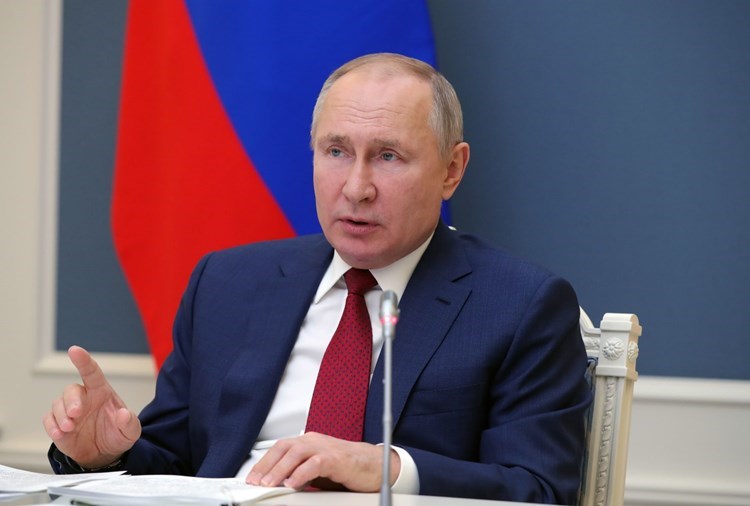Putin Approves Russia's National Security Strategy
Russian President Vladimir Putin announces Russia's National Security Strategy, a strategic document previously approved by the Russian Security Council, which has given the highest priority to protecting the people of Russia.
-

The strategy aims to increase Russia's competitiveness to counter the effects of external and internal threats.
Russian President Vladimir Putin on Saturday approved Russia's national security strategy, according to a decree published on the official portal for legal information.
"I agree to the attached National Security Strategy of the Russian Federation," the decree reads. This decree shall enter into force upon the day it is signed.
The Russian National Security Strategy is a basic strategic planning document, which defines the country's strategic national interests and priorities, goals, objectives, and measures in the field of domestic and foreign policy.
The strategy aims at strengthening national security and ensuring Russia's sustainable development.
The new version of the strategy was approved at the end of May of this year, by the Russian Security Council.
The Russian national strategic priorities are determined by the following:
1- Preserving the Russian people and developing human potential
2- Defending the state
3- Ensuring the security of the state and society
4- Ensuring information security
5- Ensuring economic security
6- Stimulating scientific and technological development
7- Preserving the safety of the environment and rational investment of natural resources
8- Protection of Russian traditional, spiritual, and moral values, historical culture, and historical heritage
9- Ensuring strategic stability and mutually beneficial international cooperation
The updated version of the strategy prioritizes the protection of the Russian people, in addition to strengthening confidence and security in the international sphere.
The new National Security Strategy is based on strengthening defense capabilities, national unity, political stability, and economic development. It was developed on the premise that Russia is an absolute sovereign country, independent foreign and domestic policy, with the ability to face external pressure.
At the same time, it affirmed the legitimacy of adopting measures to confront the dangers that pose a threat to Russia's sovereignty and territorial integrity, based on the leading role of the United Nations and the UN Security Council, moving away from the policy of alliances and military blocs.
To ensure economic security, the strategy defines tasks that aim to increase Russia's competitiveness to counter the effects of external and internal threats, creating room for economic growth at rates higher than global rates.

 2 Min Read
2 Min Read









